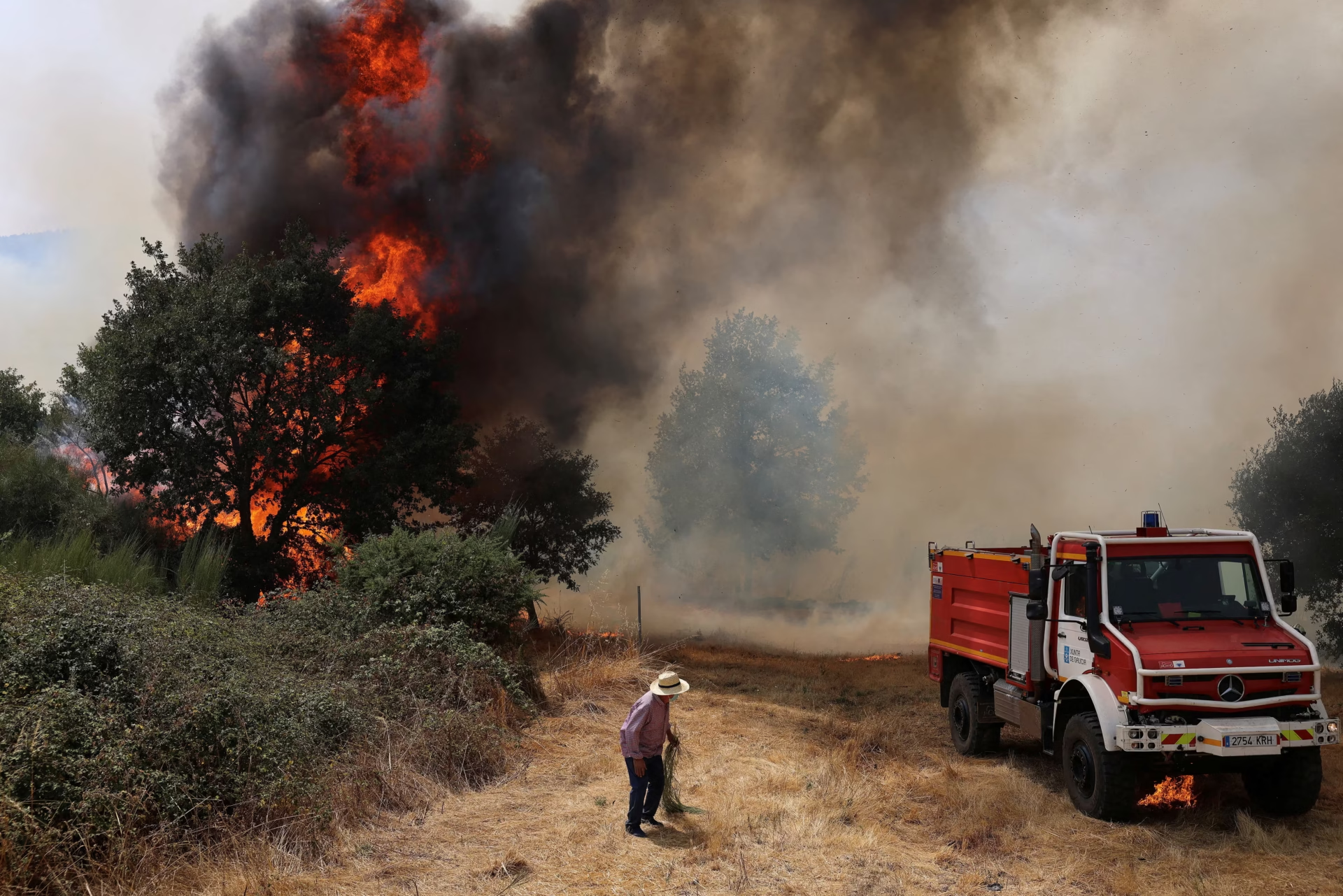The World Meteorological Organization (WMO) has issued its fifth annual “Air Quality and Climate Bulletin,” which records how wildfires caused by climate change fueled wildfires are driving a surge in air pollution across the world.
The report warns of a growing crisis and says that as the frequency and intensity of wildfires rise, so does the prevalence of hazardous airborne particles, even across continents, faraway from the actual site of fire.
The report reveals that wildfires in 2024 triggered notable spikes in PM₂.₅, which are fine particulates capable of penetrating deep into lungs and circulatory systems, in regions including Canada, Siberia, Central Africa, and especially the Amazon Basin, where a record-setting blaze sent smoke and pollutants far beyond South America.
WMO Deputy Secretary‑General, Ko Barrett, emphasized the growing health and environmental risks posed by these infernos, noting that they release a “witches’ brew” of toxic aerosols that threaten ecosystems, infrastructure, and public health.
Barrett called for addressing climate change and air quality as interlinked challenges requiring integrated responses.
Read More: Spain Becomes 5th Country to Seek EU’s Help With Wildfire
Echoing that sentiment, the Bulletin underscores drops in aerosol pollution in North America, Europe, and East Asia, owing to regulatory measures. Yet South Asia, South America, and high-latitude regions continue to struggle with elevated or rising levels, driven by wildfire emissions and industrial activity.
This year, due to higher temperatures across the world, Southern Europe saw many back-to-back wildfire events. The fires in Spain took weeks to finally come under control while others in Greece, France, Portugal, Turkiye were relatively easily controlled.
Another emerging and related concern, that the Bulletin points out, is the worsening winter fog over the Indo‑Gangetic Plain which now appears tied more to human activities than seasonal weather patterns, highlighting the complex interactions between climate, pollution, and weather systems.
Commonly known as smog, this winter fog has become a regular yearly occurrence in cities, including Pakistan’s Lahore and other cities in the Punjab province.
The Bulletin also signals unintended trade-offs in pollution control. For example, sulphur-emissions regulations in shipping have improved air quality and saved lives, but also slightly reduced the cooling effect of sulphate aerosols, potentially hastening warming.
The WMO underlines the urgent need for enhanced atmospheric monitoring, better cross-border coordination, and coordinated policies that jointly protect human health, ecosystems, and economies.
The Diplomatic Insight is a digital and print magazine focusing on diplomacy, defense, and development publishing since 2009.



